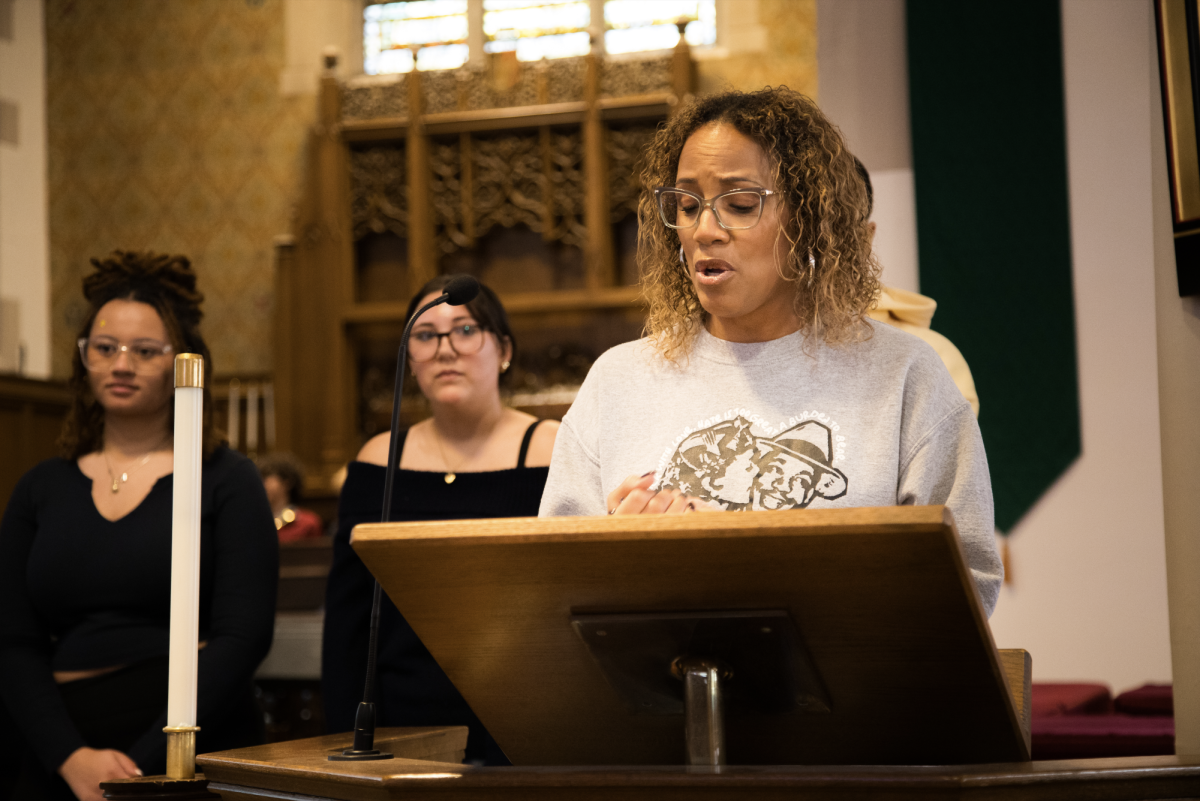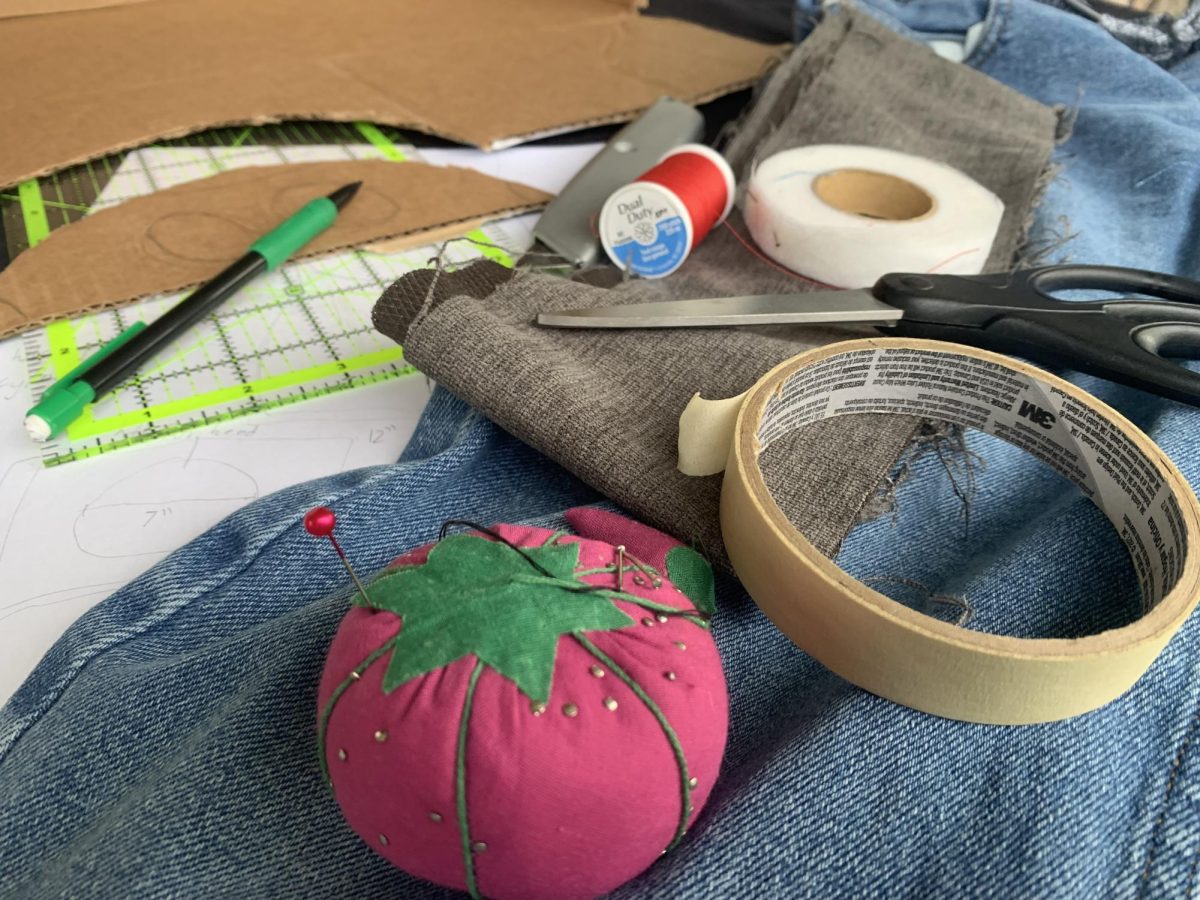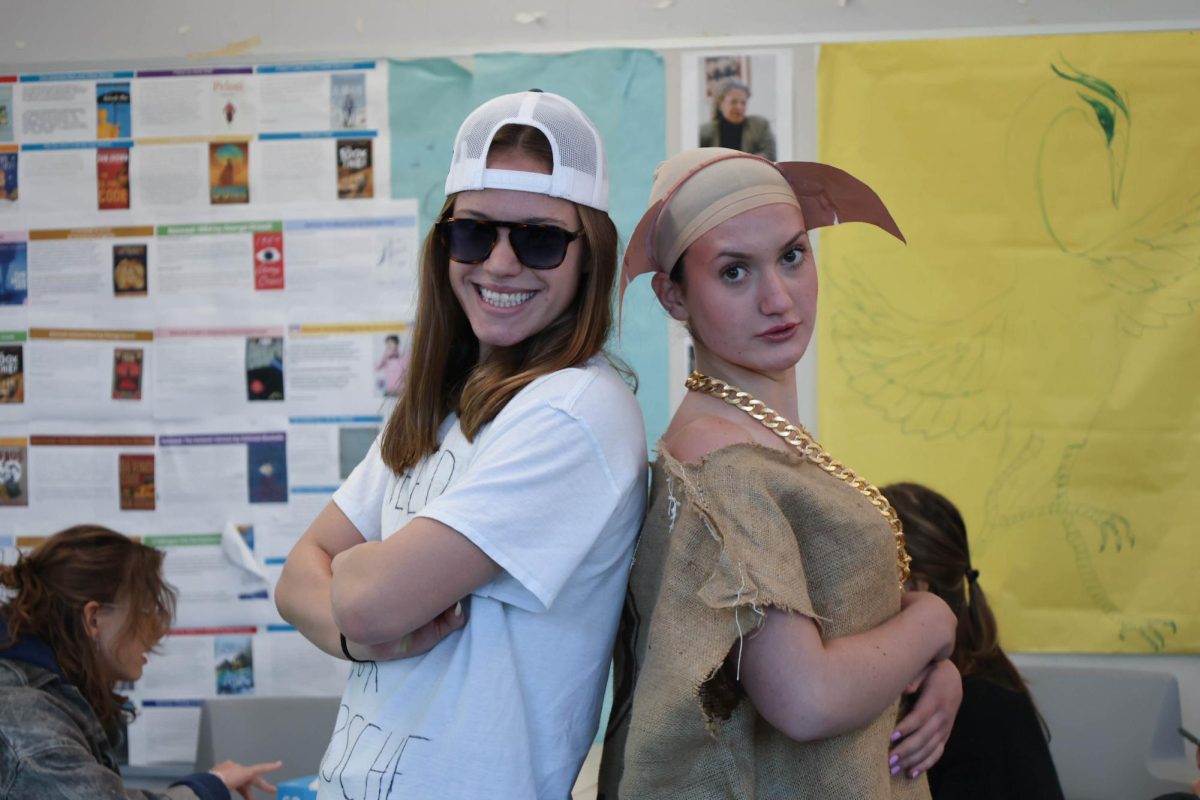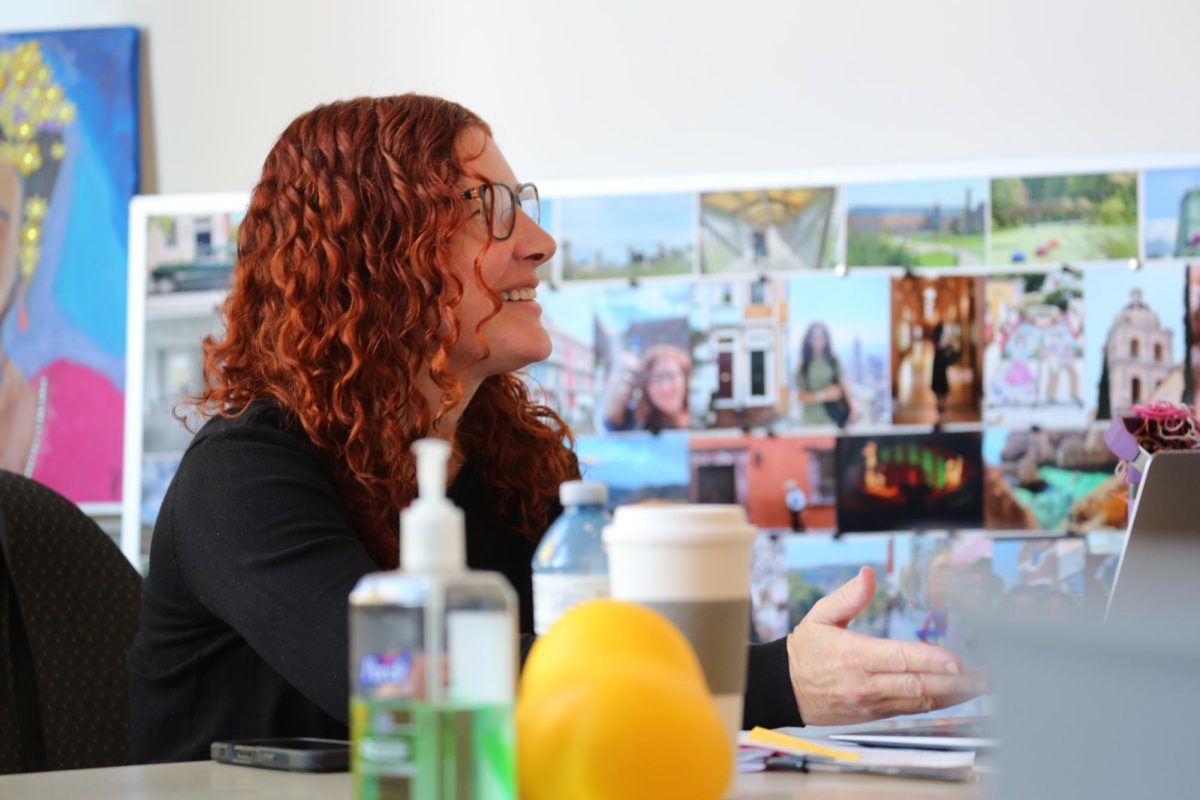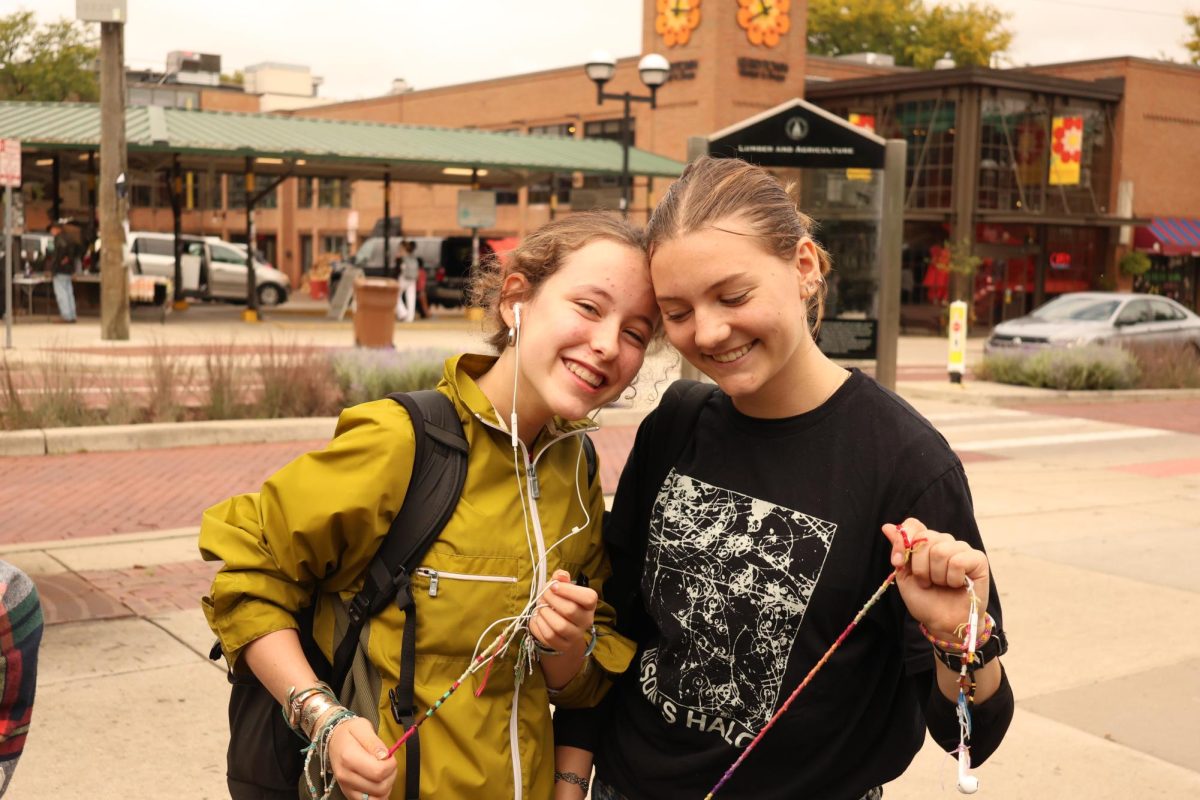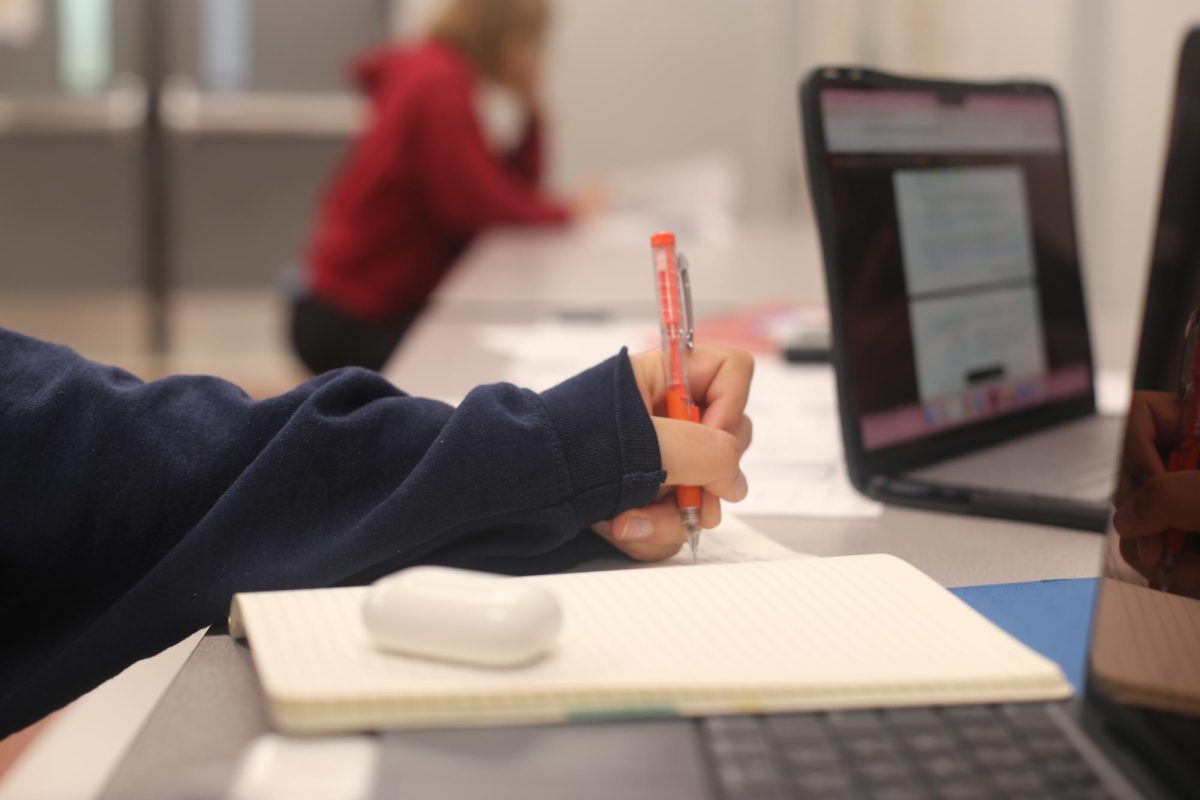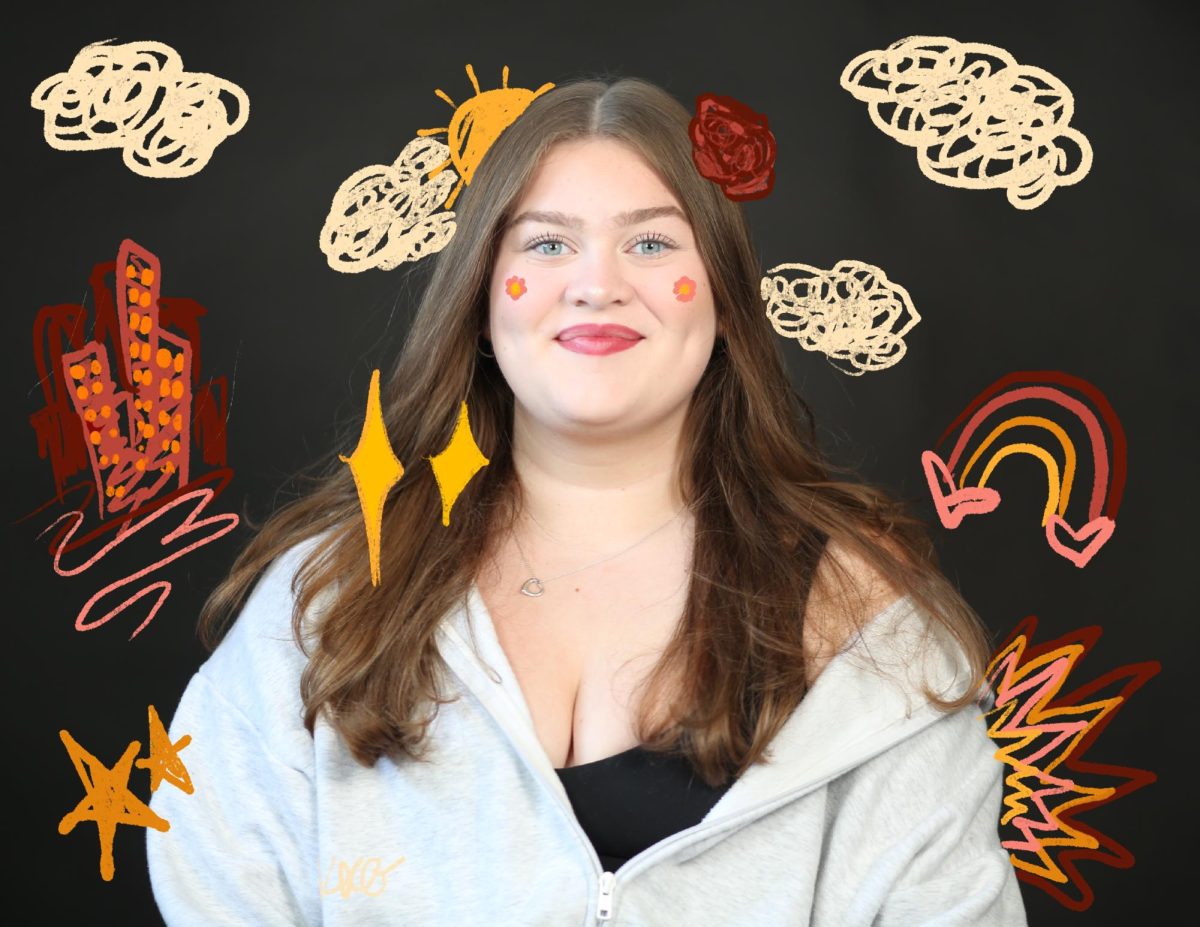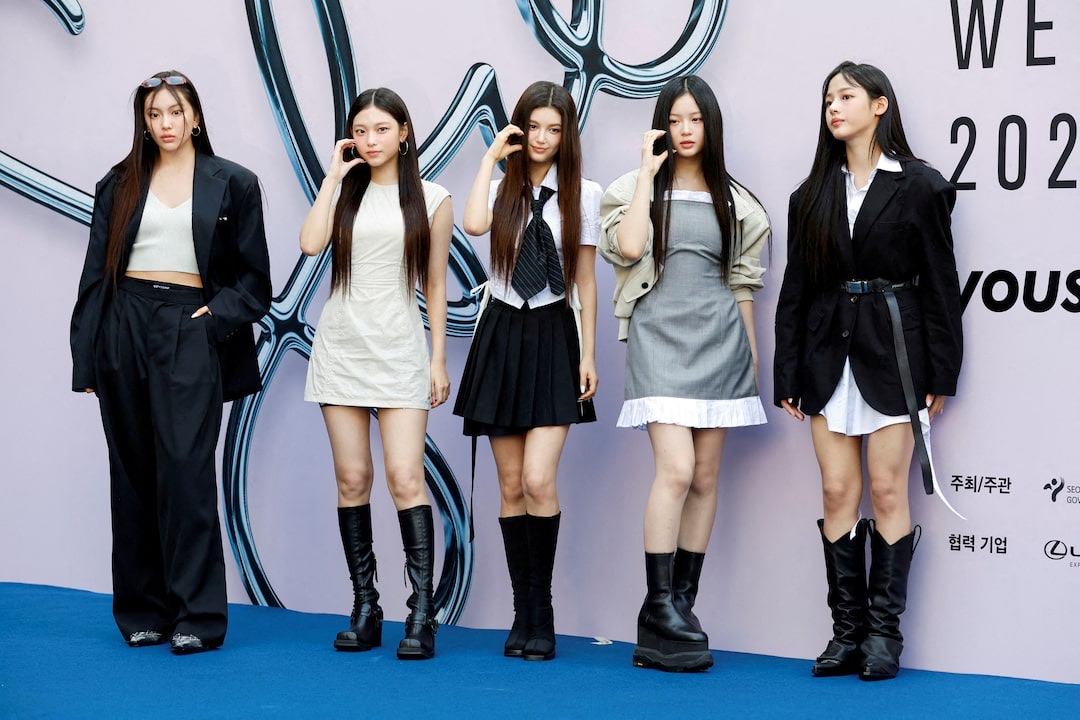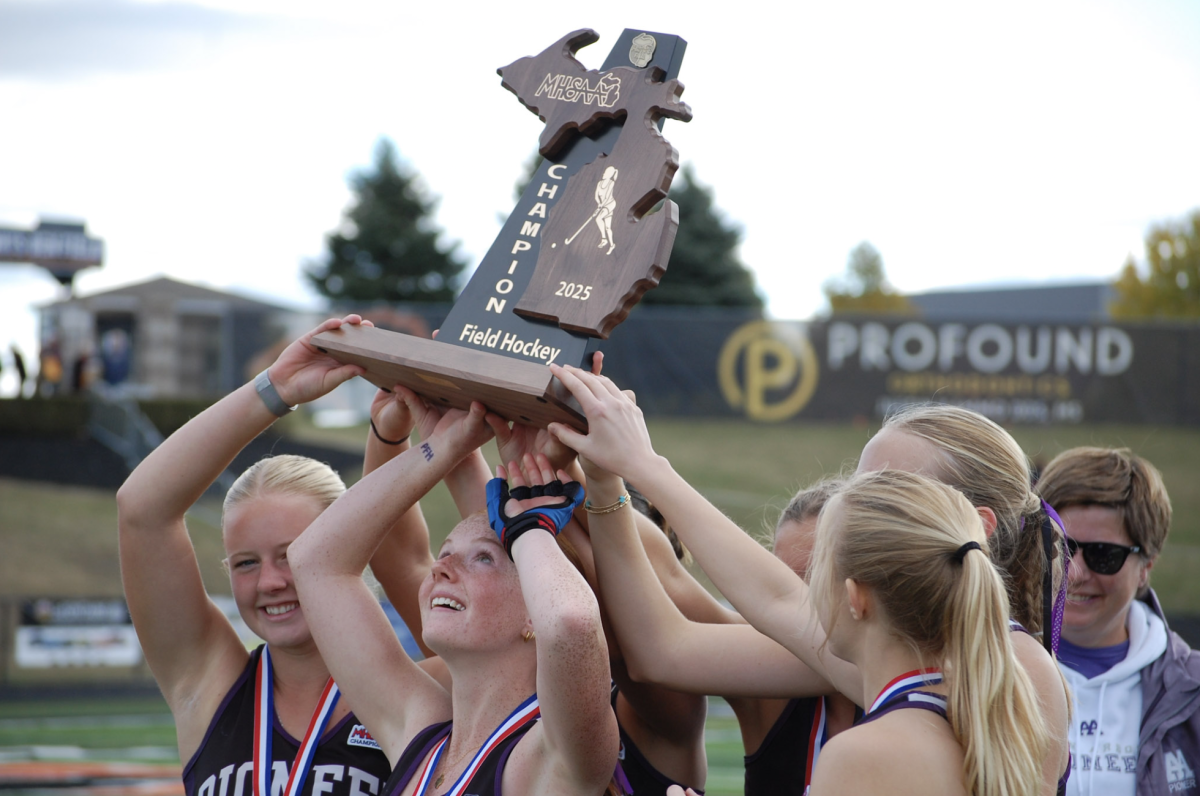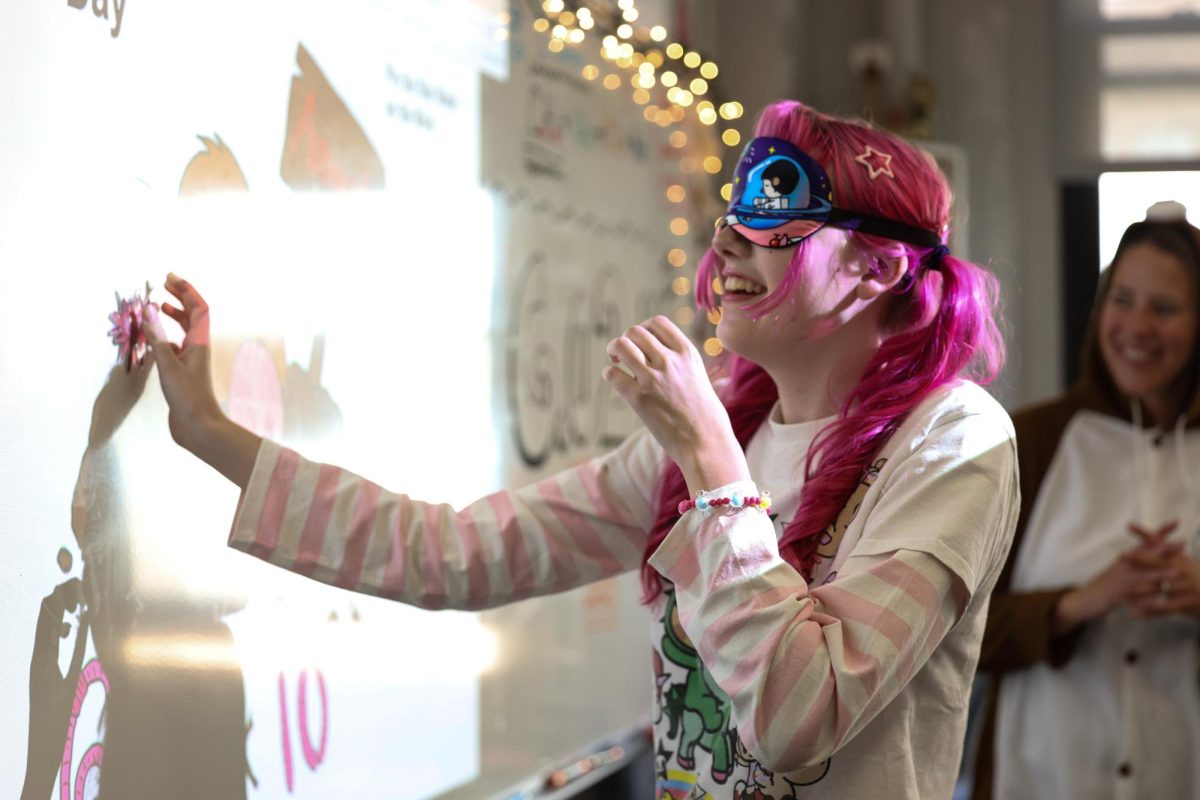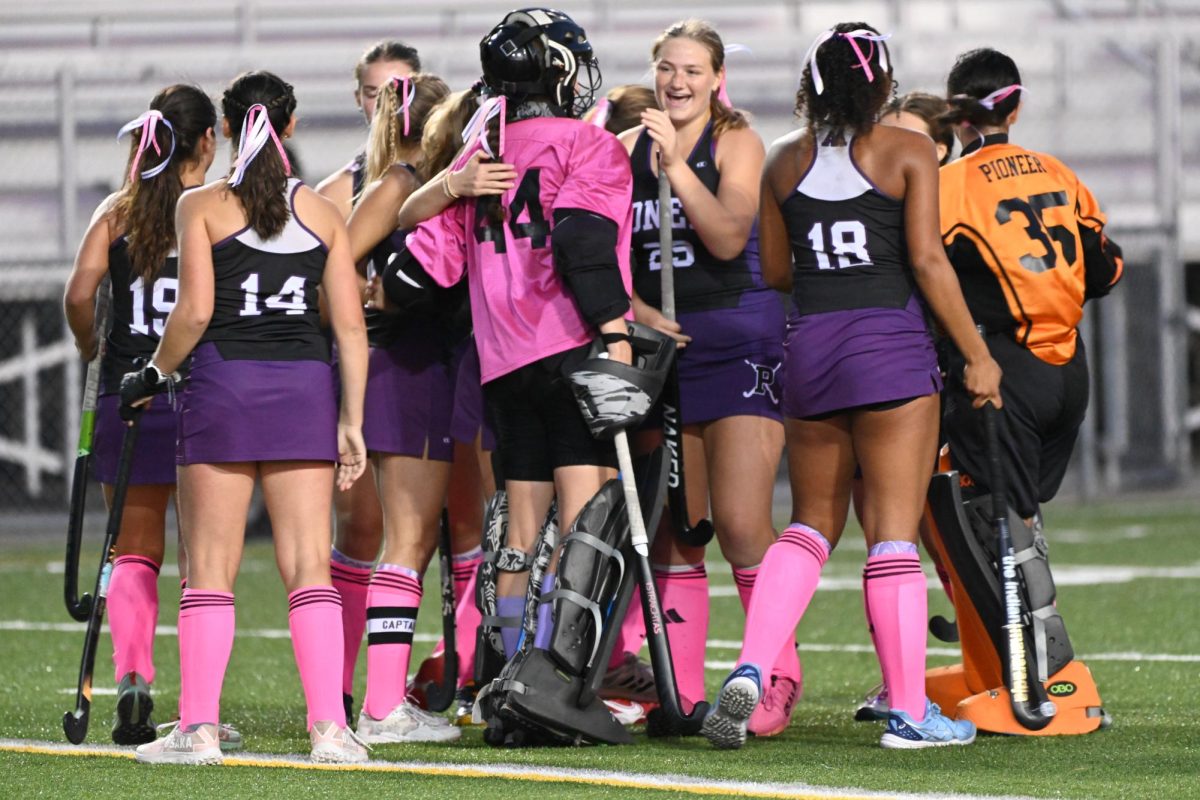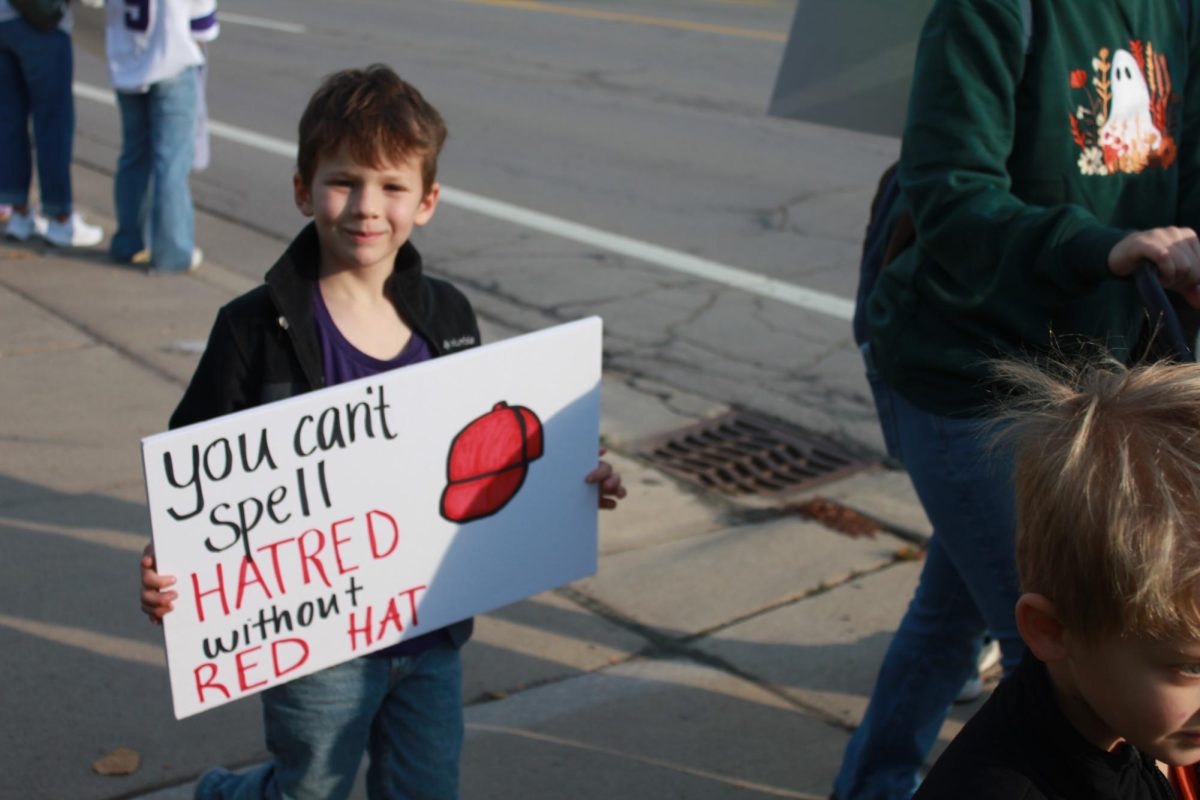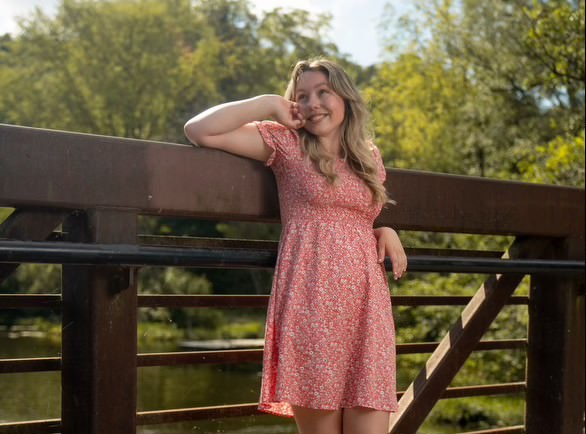Through the snowy grounds, students from CHS met in St. Andrew’s on the morning of Jan. 17. This meeting marked another AAPS celebration of Martin Luther King Jr. Day. As the entrance gates flooded with students from each forum, the CHS jazz band greeted them with lively tunes.
In order to add to the accessibility of the event, the assembly was accompanied by live sign language translation by Jen Niner’s ASL classes.
“I think it’s really awesome that we have this opportunity,” said Amelia Knight, an ASL student.
Janelle Johnson opened the meeting, introducing student MCs: Jonathan Carter, Aiko Shirato and Kai Camara. Carter assured the crowd that this celebration would be one reflecting the values of MLK’s dream. After his remark, Aiko Shirato introduced “Lift every voice and sing,” the Black National Anthem. As lyrics blasted and ASL students signed, the assembly’s purpose became clear.
Creativity from activists was a central focus in the assembly. CHS student Mia Fletcher read a portion of Amanda Gorman’s “The Hill we Climb,” originally performed at Biden’s 2021 inauguration. The room’s presentation was haunting, with a stoic and silent room. As applause subdued, Shirato introduced the jazz band, and Elijah Lawler, who explained the significance of the piece “The Chicken” in its connection to the Black-centric genre funk, inspired by legendary artists like Louis Armstrong and Charlie Parker and its impact on modern artists like Bruno Mars. The piece served as the assembly’s intermission.
After this performance, the figments of art resumed as presenter Jasmine Jennings was introduced by Camara. Jennings read her original poem, “You Think You Know.” The poem discussed Jennings’ own experience as a Black individual, with stanzas detailing her relationship with both her individual and family history. Her poem discussed the shallowness of American exploration into their own history and the pain that causes.
“I’m more than the stigma, I too, am America,” Jennings said, concluding her speech.
Jennings was greeted with snaps and claps alike at the end of her speech.
The next guest was University of Michigan professor, Dr. Stephen Ward. Carter introduced Ward as accomplished in not only teaching but also in writing and nonprofits.
Ward’s first statement was one of thanks, giving shoutouts to the jazz band, ASL class and Johnson. Ward emphasized the spirit of recognizing your past and exploring your future.
“In celebrating MLK day we are doing that,” Ward said.
From there, he focused on asking a question to the student body, “Why celebrate the holiday?” One student answered that the holiday’s significance would be forgotten if not celebrated, and Ward asked why that mattered. From there, he turned his conversation to that of King’s contributions, memory and acknowledgment of the past.
“Throughout your lifetimes, the holiday has always been a thing,” Ward said, “But that has not always been the case.”
Ward explained Former President Ronald Reagan’s initial reluctance to establish the holiday and emphasizes how the ability to celebrate this holiday was a struggle and movement within itself.
“In the last year of his [King’s ] life was vilified,” Ward said.
Ward emphasized his hope that students can counter that energy still present in our society today, as he sees it as one placing property values over people.
From there, Joslyn Hunscher-Young, CHS teacher, concluded the meeting with good news: the marker acknowledging Community’s Jones School was approved by the city. In her resting words to students, Hunscher-Young encouraged students to spend the weekend and days ahead to reflect on the movement and assembly, emphasizing the need of collaboration in political movements.
The meeting showcased both loss and resilience, a statement on Martin Luther King’s personhood. The meeting highlighted how students can help with work that has been, is being done and will be done in regard to the importance of the Black Lives Matter movement.



